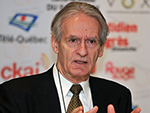Euroacademia Conferences
 Europe Inside-Out: Europe and Europeanness Exposed to Plural Observers (9th Edition) April 24 - 25, 2020
Europe Inside-Out: Europe and Europeanness Exposed to Plural Observers (9th Edition) April 24 - 25, 2020 Identities and Identifications: Politicized Uses of Collective Identities (9th Edition) June 12 - 13, 2020
Identities and Identifications: Politicized Uses of Collective Identities (9th Edition) June 12 - 13, 2020 8th Forum of Critical Studies: Asking Big Questions Again January 24 - 25, 2020
8th Forum of Critical Studies: Asking Big Questions Again January 24 - 25, 2020 Re-Inventing Eastern Europe (7th Edition) December 13 - 14, 2019
Re-Inventing Eastern Europe (7th Edition) December 13 - 14, 2019 The European Union and the Politicization of Europe (8th Edition) October 25 - 26, 2019
The European Union and the Politicization of Europe (8th Edition) October 25 - 26, 2019 Identities and Identifications: Politicized Uses of Collective Identities (8th Edition) June 28 - 29, 2019
Identities and Identifications: Politicized Uses of Collective Identities (8th Edition) June 28 - 29, 2019 The European Union and the Politicization of Europe (7th Edition) January 25 - 26, 2019
The European Union and the Politicization of Europe (7th Edition) January 25 - 26, 2019 7th Forum of Critical Studies: Asking Big Questions Again November 23 - 24, 2018
7th Forum of Critical Studies: Asking Big Questions Again November 23 - 24, 2018 Europe Inside-Out: Europe and Europeanness Exposed to Plural Observers (8th Edition) September 28 - 30, 2018
Europe Inside-Out: Europe and Europeanness Exposed to Plural Observers (8th Edition) September 28 - 30, 2018 Identities and Identifications: Politicized Uses of Collective Identities (7th Edition) June 14 - 15, 2018
Identities and Identifications: Politicized Uses of Collective Identities (7th Edition) June 14 - 15, 2018
Europe in Search of Europeans: The Road of Identity and Myths
-
-

-
Presentation speakers
- Gérard Bouchard, Université du Québec à Chicoutimi, Canada
- Download presentation
Abstract:
This paper is a plea in favor of the EU. Yet, it is also critical of some choices it has made in the past, choices that now hinder its development. I seek to demonstrate that the EU needs a more substantial symbolic foundation, regardless of its more or less centralized configuration. I assume that any form of social link must rely on some shared basic symbolic assets. A first part recalls the founding cultural choices that have allowed the EU to take shape and to enjoy a rapid development. The second part proceeds to show how the same choices can be linked to the major predicaments that are plaguing the EU today, mainly because they have not been revised and adapted to the changing conjunctures. The analysis then goes on to review the unsuccessful subsequent attempts made by the EU over the past decades to develop new myths and a European identity. I contend that a particularly unfortunate cultural choice made by the EU was to distrust and sidestep the nations (as configurations of culture, not to be confused with the states), and to opt for a top-down process of governance. In order to break this pattern, I suggest that the EU will have to find a way to mend fences with the nations in order to i) put an end to a long-standing detrimental tension, ii) harness rather than stifle the nations’ still substantial symbolic resources and energy, and iii) secure a platform to build new European myths. Examples of a new way to build the future myths are offered, essentially through what I call a europeanization of national myths. The overall goal is to carve myths that would resonate both at the continental and national levels. In other words : to invent a true European voice with various national echoes.
-
Related Presentations













